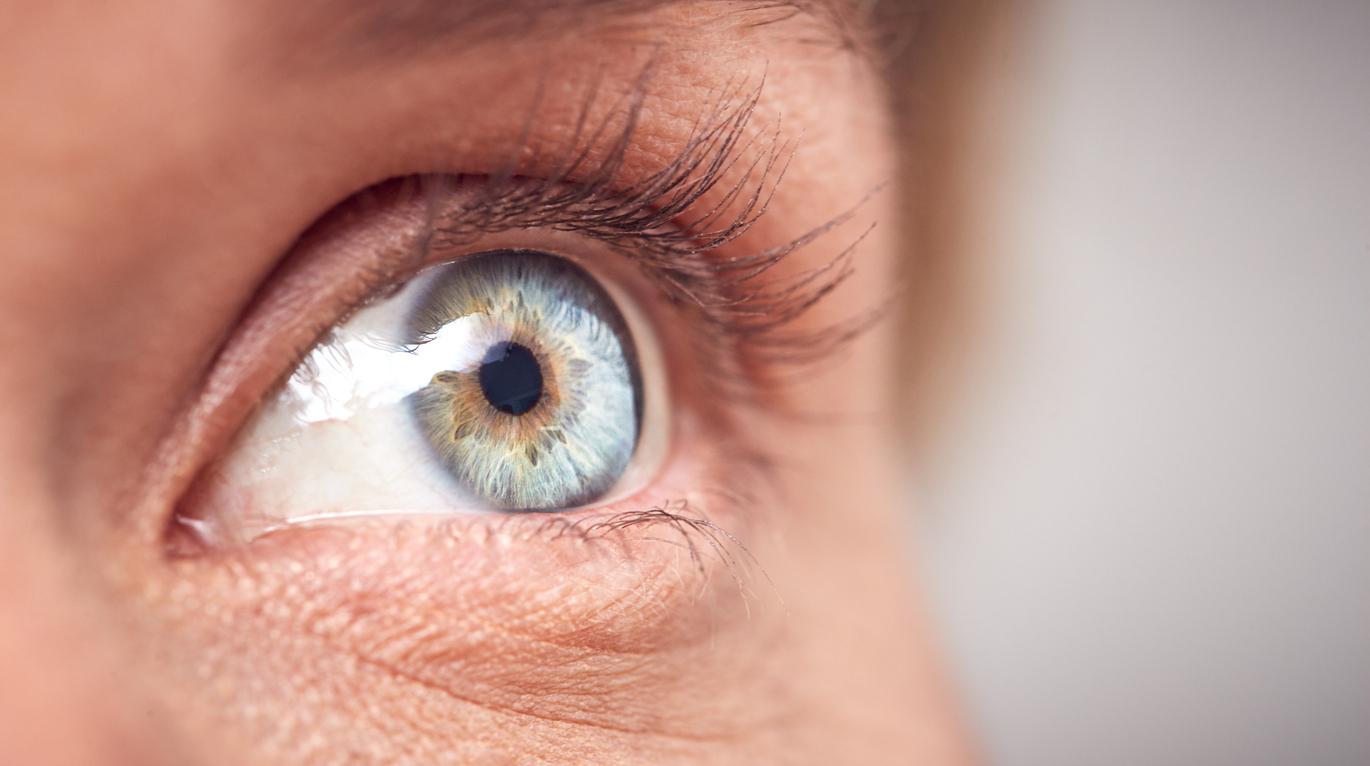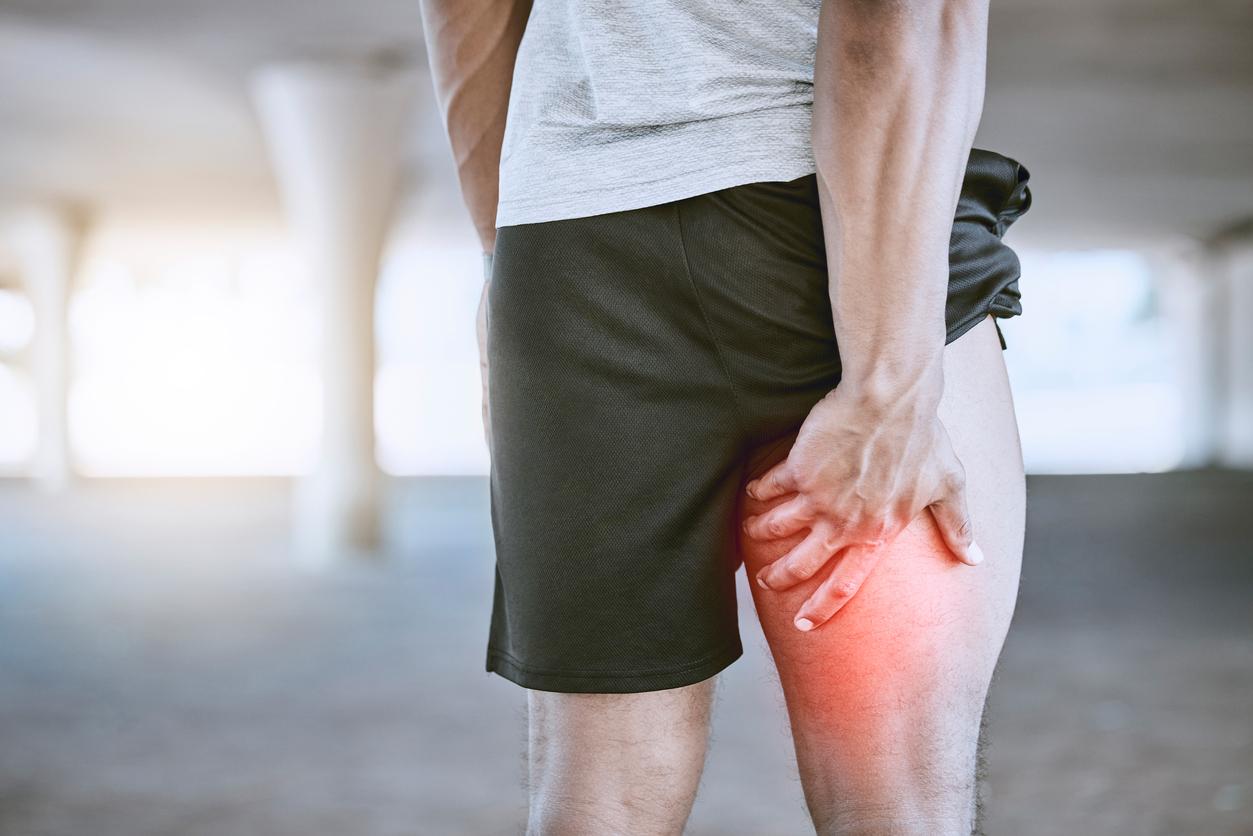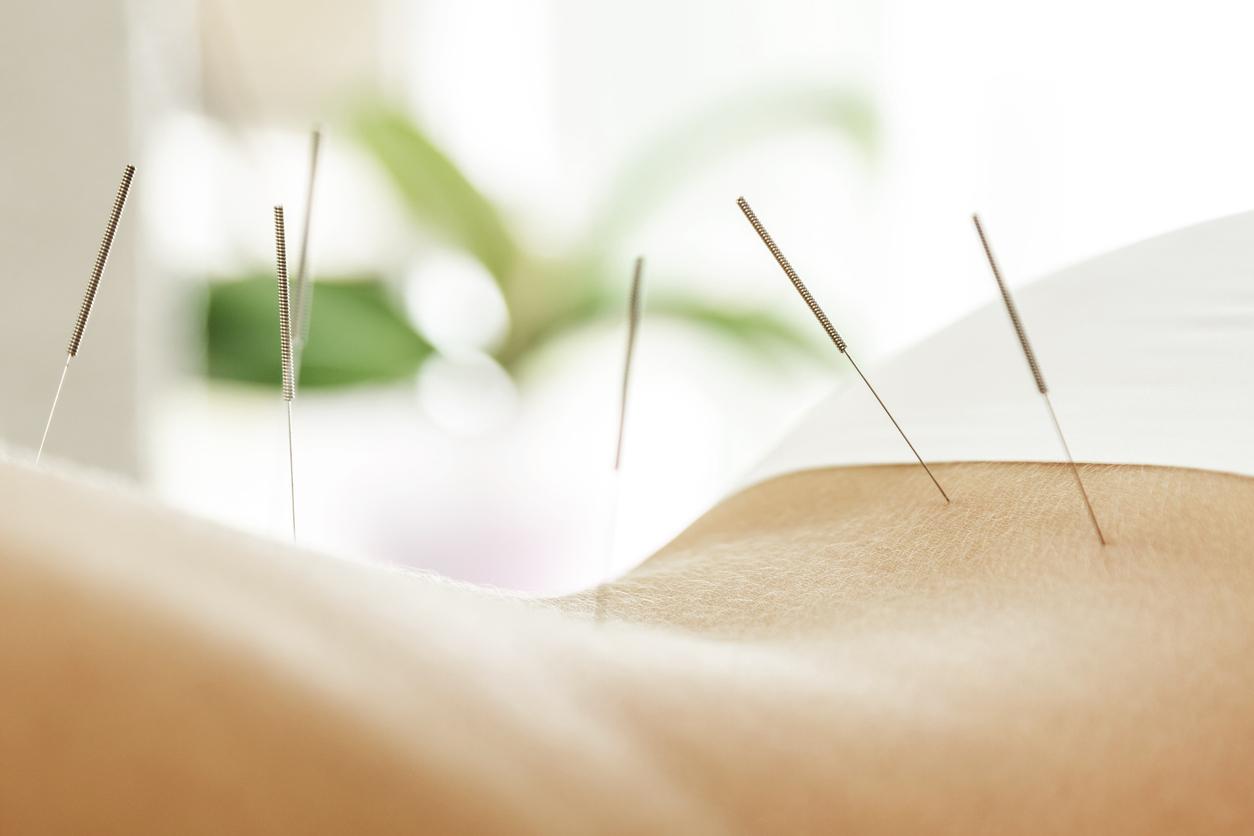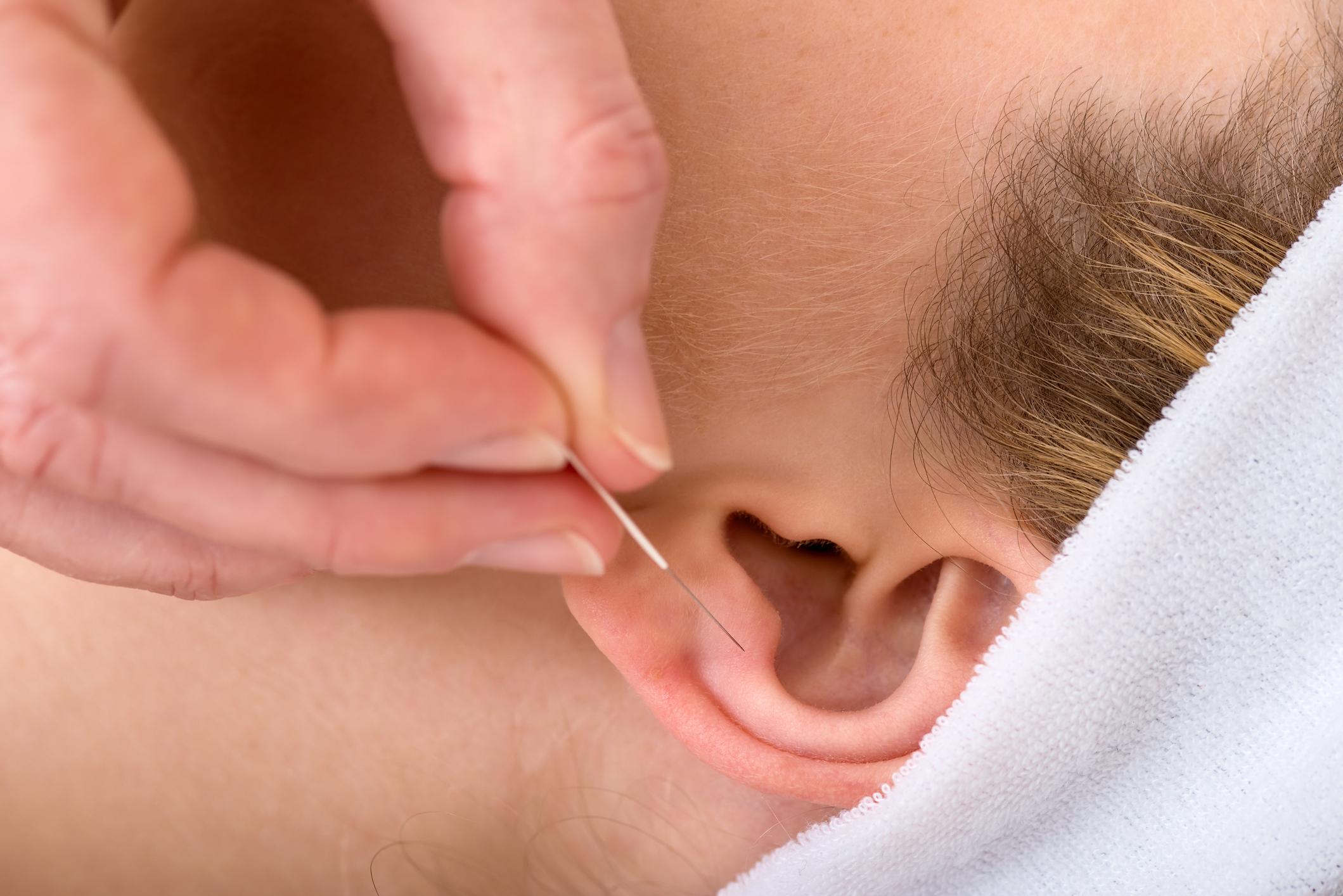This practice from Chinese medical tradition results in less pain and better function in patients suffering from chronic sciatica caused by a herniated disc.
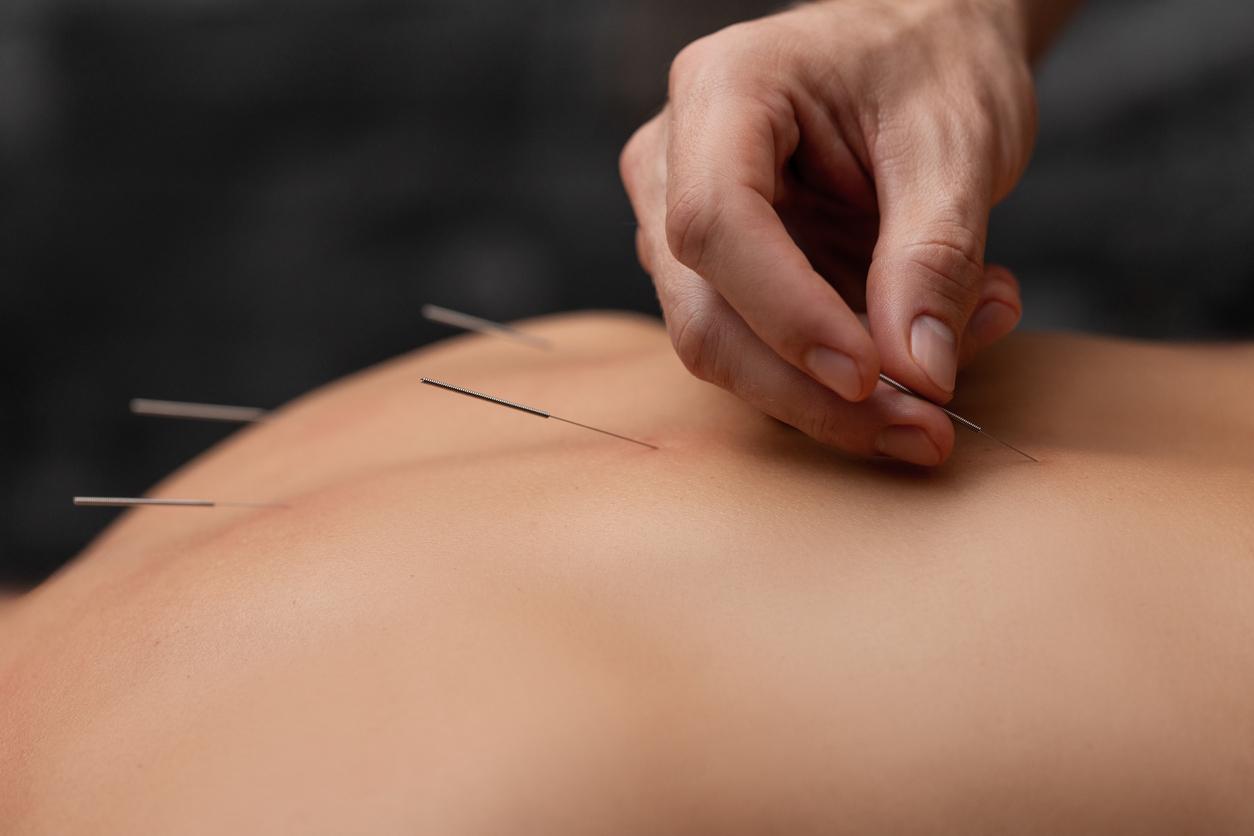
- Sciatica, which occurs as a result of a herniated disc, is a common condition, but currently available treatments are unsatisfactory.
- According to a study, acupuncture sessions can reduce pain and disability.
- These benefits persisted until the 52nd week, one year after the intervention.
Fibromyalgia, allergies, depression, alcohol addiction, transit disorders… Acupuncture can be offered for many physical and mental conditions. It involves stimulating “points” on various locations on the body using techniques that may be physical, such as the implantation of needles, acupressure devices, the application of suction cups, magnets or lasers. . In a new study, researchers from the University of Chinese Medicine in Beijing (China) wanted to know if this practice was effective and safe in reducing the pain of chronic sciatica caused by a herniated disc.
10 sessions of acupuncture or sham acupuncture over four weeks
To find out, they recruited 216 adults, including 147 women and 69 men, who suffered from chronic sciatica due to a herniated disc. Volunteers began participating in the trial from March 25, 2021 to September 23, 2021 and were followed until September 22, 2022. During this period, participants received either 10 sessions of acupuncture or sham acupuncture on four weeks. Next, the team looked at data from December 2022 to March 2023. “The primary outcomes analyzed were changes in the leg pain scale and disability index from baseline to week 4. Secondary outcomes were adverse events,” can we read in the research.

Chronic sciatica due to herniated disc: less pain and better function with acupuncture
The results, published in the journal JAMA Internal Medicineshowed that leg pain decreased by 30.8 mm in the acupuncture group and 14.9 mm in the sham acupuncture group after four weeks of intervention. Results for function using the disability index were similar, with a decrease of 13 points in the acupuncture group and 4.9 points in the sham acupuncture group. According to the authors, for pain and disability, the difference between groups became apparent from the second week and persisted until the 52nd week. “No serious adverse events occurred.” Faced with these encouraging data, scientists conclude that acupuncture should be considered as a potential therapeutic option for patients suffering from chronic sciatica due to a herniated disc.





